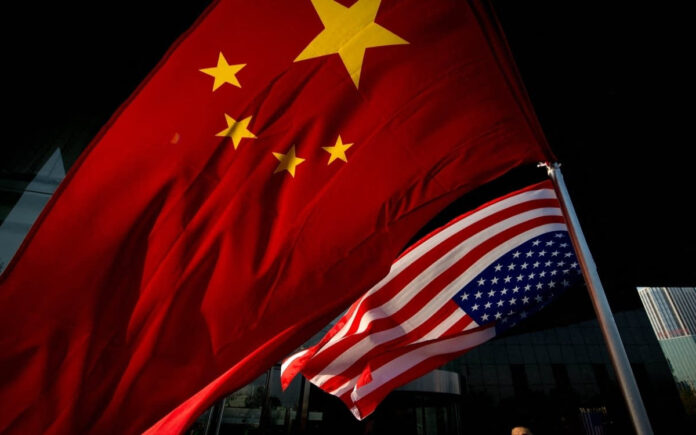Beijing/Washington: Tensions between the United States and China have escalated once again, with Beijing urging President Donald Trump to withdraw his latest round of steep tariffs amid growing fears of a prolonged trade war. The Chinese commerce ministry has demanded a rollback of the newly imposed 145% tariff on Chinese imports—an increase that follows a series of tit-for-tat measures between the world’s two largest economies.
The call for de-escalation comes as Washington temporarily suspended certain tariffs for 90 days on goods from select global markets. However, Chinese officials argue that these pauses do little to ease trade hostilities and have reiterated their stance that the US is engaging in unjustified protectionism.
“We urge the US to take a big step to correct its mistakes, completely cancel the wrong practice of ‘reciprocal tariffs’ and return to the right path of mutual respect,” said the Chinese commerce ministry in a statement released over the weekend.
The conflict began with a 54% tariff earlier this month and has now ballooned to 145%, prompting China to respond with a 125% levy on American products. In its statement, Beijing warned it would “fight to the end” if Washington continues to escalate the dispute.
Meanwhile, the White House has attempted to temper concerns with a 90-day tariff exemption for certain consumer electronics, including smartphones and computers. But US Commerce Secretary Howard Lutnick emphasized that these exemptions are tactical and not indefinite.
“We need to have these things made in America,” Lutnick told ABC News, signaling a broader plan that could soon include a sweeping tariff on semiconductors—potentially upending global tech supply chains.
President Trump reinforced that the exemptions were part of a broader reshuffling rather than a retreat from tariffs.
“They are just moving to a different tariff ‘bucket’,” he wrote on social media, adding that a “National Security Tariff Investigation” would soon extend to the entire electronics industry.
Despite rising trade tensions, no direct talks are currently scheduled between Trump and Chinese President Xi Jinping.
Also Read | Zuckerberg’s Empire Under Fire in High-Stakes Antitrust Trial
U.S. Trade Representative Jamieson Greer confirmed there were “no plans” for a Trump-Xi call, further dimming hopes for near-term diplomacy.
Markets have responded nervously to the deepening uncertainty, as investors grapple with potential disruptions to supply chains and rising consumer prices. Analysts warn that the fallout could ripple beyond China and the US, dragging down global trade and economic growth.
Also Read | Ray Dalio: Trump’s Trade War Is Driving U.S. Toward Recession
China is now evaluating the impact of the exemptions while stepping up efforts to rally support from other trading partners through international forums. Beijing aims to coordinate a broader pushback against what it describes as U.S. “unilateralism.”
During a visit to Miami on Saturday, Trump told reporters that more information about the exemptions and further tariff strategies would be released in the coming week.



